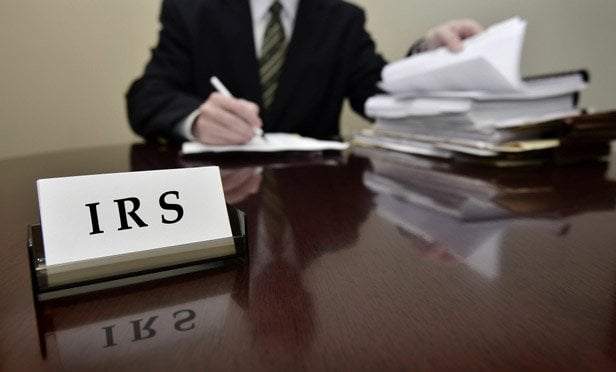 (Photo: Shutterstock)
(Photo: Shutterstock)
The Internal Revenue Service has issued final regulations updating the federal income tax withholding rules for certain periodic retirement and annuity payments after Dec. 31, 2020, as well as business expense deduction for meals and entertainment.
Prior to the Tax Cuts and Jobs Act of 2017, if no withholding certificate was in effect for a taxpayer's periodic payments, the amount to be withheld from the payments was determined by treating the taxpayer as a married individual claiming three withholding exemptions.
Recommended For You
The tax law amended the rule to "provide that the rate of withholding on periodic payments when no withholding certificate is in effect (the default rate of withholding) would instead be determined under rules prescribed by the Secretary of the Treasury," the IRS states.
The final regulation, which provides guidance for 2021 and future calendar years, specifies that Treasury and IRS will provide the rules and procedures for determining the default rate of withholding on periodic payments in applicable forms, instructions, publications and other guidance.
In July 2020, the IRS released a draft of a redesigned 2021 Form W-4P and instructions intended to align with the redesigned Form W-4, Employee's Withholding Certificate, the IRS explained.
The draft 2021 Form W-4P also proposed a new default rate of withholding on periodic payments that begin after Dec. 31, 2020.
"Based on comments received on the draft Form W-4P, regarding the time required by payors to implement the new form and a new default rate of withholding, the IRS will postpone issuance of the redesigned form. Instead, the 2021 Form W-4P will be similar to the 2020 Form W-4P," the IRS said.
The IRS also plans to provide in the instructions to the 2021 Form W-4P and related publications that the default rate of withholding on periodic payments will continue to be determined by treating the taxpayer as a married individual claiming three withholding allowances.
Business entertainment
The 2017 tax law also generally eliminated the deduction for any expenses related to activities generally considered entertainment, amusement or recreation.
However, the IRS said, "taxpayers may still deduct business expenses related to food and beverages if certain requirements are met."
The final regs address the disallowance of the deduction for expenditures related to entertainment, amusement or recreation activities, including the applicability of certain exceptions to this disallowance.
They also provide guidance to determine whether an activity is considered entertainment and also address the limitation on the deduction of food and beverage expenses.
© 2025 ALM Global, LLC, All Rights Reserved. Request academic re-use from www.copyright.com. All other uses, submit a request to [email protected]. For more information visit Asset & Logo Licensing.







